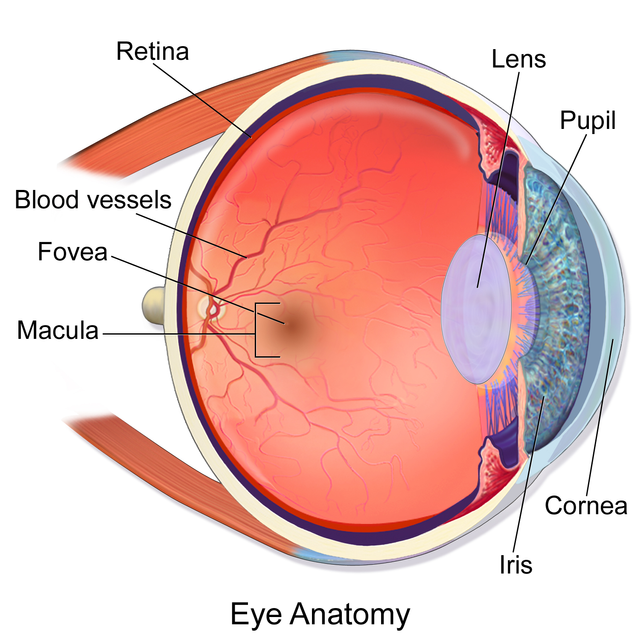Stem cell trial successfully restores sight to patients with macular degeneration
It was recently reported that two elderly patients had their sight restored after a first-of-its-kind stem cell treatment. In particular, these patients were suffering from macular degeneration, a disease that typically affects older people and which stands as the fourth most common cause of blindness after cataracts, premature birth and glaucoma.
The disease typically manifests itself with blurred vision starting from the centre of the visual field in either one or both eyes, and worsens as time goes by, leaving patients functionally blind. As the name suggests, the condition arises due to damage to an area of the retina known as the macula. This area contains, among other structures, the fovea, a specialized centre of the retina containing a dense array of cones, photoreceptive cells essential for our colour vision. For reference, around half of the nerve fibres in the optic nerve carry information from the fovea, even though it comprises only a small fraction of the retina's whole area. In contrast to the fovea, the rest of the retina is not so tightly packed and contains a higher proportion of rods, cells that can't discriminate colors but are more sensitive to light (you can easily test this yourself by looking at the night sky, the same stars will look brighter when you place them at the periphery of your visual field vs its center.)
For this clinical trial, researchers grew retinal tissue consistent with the biology of the macula from human embryonic stem cells (hESCs) in a patch that was microsurgically inserted into the subretinal space of a single eye in both patients. Visual acuity was then tested by several methods, including the ETDRS letter chart. Twelve months after surgery, both patients increased the number of letters they could read from 8 and 10 to 29 and 39, respectively. One of the two patients, octogenarian Douglas Waters, shared that before the treatment he couldn't see anything out of his right eye, but that after the surgery his vision "improved to the point where I can now read the newspaper and help my wife out with the gardening. It’s brilliant what the team have done and I feel so lucky to have been given my sight back."
The main disadvantage of this otherwise successful clinical trial is the need for immunosuppression. Unlike adult stem cells, which can be obtained from the patients themselves, hESCs are derived from "non-self" embryonic tissue (usually sourced with consent from in vitro fertilization clinics). Still, the researchers demonstrated that long-term survival of the implant was possible just with local immunosuppression.
Finally, let us take a moment to remember that, in the USA, the George W. Bush administration had all but virtually banned federal funding for hESC research in 2001, a move criticized by experts who claimed it set back stem cell research, and later undone by Obama in 2009.
Read more here:
"Blind people could have sight restored after stem cell trial success" at the Irish Independent
Original scientific paper here:

You just planted 0.05 tree(s)!
Thanks to @tychoxi
We have planted already 3611.91 trees
out of 1,000,000
Let's save and restore Abongphen Highland Forest
in Cameroonian village Kedjom-Keku!
Plant trees with @treeplanter and get paid for it!
My Steem Power = 20793.28
Thanks a lot!
@martin.mikes coordinator of @kedjom-keku
Congratulations you got resteemed!
Resteem your Posts to 6000+ Followers — just send 0.05 SBD or STEEM to @yougotresteemed with link in memo (you also got a chance of receive a random upvote)!
For daily bloggers we offer a Resteem subscription including at least one Resteem a day and a daily feature + the chance of daily upvotes!
For more infos read our Vision & Rules and also get you your free Resteem!
Congratulation you also got a random upvote by @yougotresteemed!
Greetings! I am a minnow exclusive bot that gives a 5X upvote! I recommend this amazing guide on how to be a steemit rockstar! I was made by @EarthNation to make Steemit easier and more rewarding for minnows.